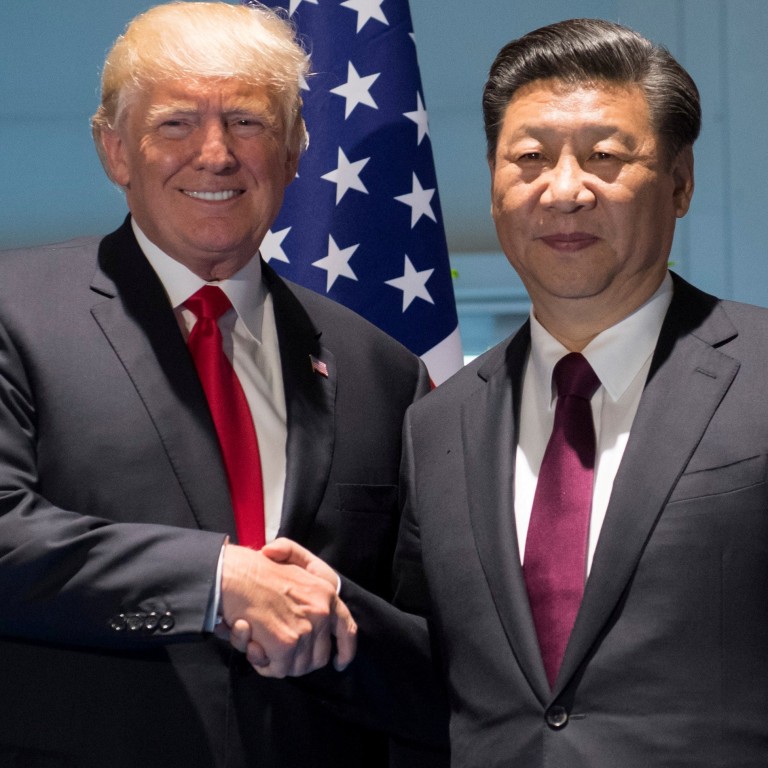
How China will look elsewhere to push agenda after cancelled Apec summit in Chile hits hopes of US trade deal
- Despite the cancellation of the Asia-Pacific Economic Co-operation meeting, the BRICS summit in Brazil will offer an alternative platform for Beijing
- Both China and the US say that the cancellation of the event will not affect trade war negotiations
China is looking to other channels such as the forthcoming BRICS summit to advance its diplomatic agenda following the cancellation of the Asia-Pacific Economic Cooperation summit in Chile.
While the US and China had hoped to seal a “phase one trade deal” in Santiago, they have said the cancellation – due to the ongoing protests and rioting in Chile – will not affect their negotiations and they are looking for another time and place.
However, Beijing will still need to find ways to compensate for the loss of face time with other world leaders.
Jiang Shixue, professor of international relations at Shanghai University, said that while the cancellation was bad news for the US and China, pressing matters could be handled through other means.

“Nowadays we have many, many channels of communication,” said Jiang. “Xi Jinping will still go to the BRICS summit, and visit few other Latin American countries, so it is not a loss for China,” he added.
The BRICS summit will be held in Brasilia on November 13 and 14 and will provide an opportunity for talks with Russia, another Apec member, as well as the hosts, India and South Africa.
The two-day Apec summit was due to start two days after the BRICS meeting and while China expressed regret at the cancellation it said it “understood and respected” Chile’s decision.
Trade war: China and US to hold phone talks on Friday after Apec setback
“Apec cooperation now faces both opportunities and challenges,” said Chinese foreign ministry spokesman Geng Shuang at a press conference on Thursday, adding that China would work with other parties to advance Asia-Pacific relations and remained committed to Apec.
The cancellation – as well as that of the UN climate talks due to take place next month – hurt Chile’s international role, but is unlikely to affect China’s relations with Latin America at large, said Mauricio Santoro, assistant professor of international relations at State University of Rio de Janeiro.
“I believe the trends concerning the region and China – rising trade and investments, countries joining the Belt and Road Initiative – will go on,” he said.
Santoro said Brazilian President Jair Bolsonaro’s recent visit to China indicated that Latin American countries could continue to work with China despite their differences.
Bolsonaro had accused China of “buying up” the country on the campaign trail, but walked away with promises of greater agriculture purchases by China during his first visit to Beijing last week.
“It was important that the trip of the Brazilian president to China went well,” Santoro said. “Bolsonaro is the most radical right-wing leader in the region, and if even he can have good relations with Xi Jinping, then everybody else can.”
Chile’s Apec gathering cancelled, disrupting Trump and Xi’s trade war agreement
“Such a big meeting like this, I believe it’s a very unfortunate event for each country. Everyone is facing major problems in the global economy now, and it’s important to work out multilateral solutions to the problem,” said Lu Xiang of the Chinese Academy of Social Sciences.
Even though previous Apec summits have often been overshadowed by the rivalry between China and the US, Chinese officials have often used the 21-nation gathering to promote their agenda.
Lu said that other Apec members would be happy to see a deal between the US and China, as it would give confidence to the global economy, but talks with other countries were still important.
“China will have find other ways of picking up issues bilaterally with important partners, and big economies like Brazil and Australia,” he said.

